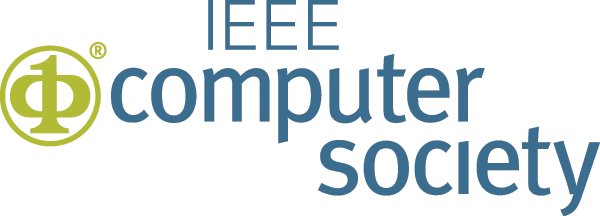Science Gateways Institute Workshop (at IEEE Cluster 2013)
- Details
- Published on Friday, 21 June 2013 16:00
Photo: (c) Trustees of Indiana University
September 27, 2013, Indianapolis, Indiana
In conjunction with IEEE Cluster 2013
A Science Gateway is a community-developed set of tools, applications, and data collections that are integrated through a web portal or a suite of applications.
Gateways can provide access to many things – a highly-tuned parallel application running on a supercomputer, a remote instrument like a telescope or electron microscope, a curated data collection, tools to create workflows and visualizations linking these different resources and collaborative venues to discuss results, share curricula and presentations and more. Gateways enable not only researchers with a common scientific goal but also students and members of the community more generally by providing access to top-tier resources.
As cyberinfrastructure becomes increasingly complex and the most difficult scientific problems depend on advanced digital resources, researchers are turning to gateways to improve their efficiency. Gateway developers typically have few venues for exchanging experiences. While there is much that is common in gateway development across domains, often work is done in many different vacuums, where one group does not benefit from developments in another.
About the Workshop
This workshop (and its proceedings and publications) provided a means of exchanging ideas, building on the successful Gateway Computing Environments series (2005-2011, http://www.collab-ogce.org). Proceedings have been published through IEEE Xplore online proceedings.
Extended versions of some workshop papers (by invitation only) will be published in a special journal issue of Concurrency in Computation – Practice and Experience (http://www.cc-pe.net/journalinfo/). This special issue will also include extended papers from the June 2013 International Workshop on Science Gateways (http://www.amiando.com/iwsg2013.html). IWSG is now in its fifth year.
Our keynote speakers were Peter Kunszt and Dennis Gannon.
- Kunszt is currently project manager of SyBIT, which helps the Swiss Systems Biology Initiative manage vast amounts of bioinformatics data. Peter also brings a breadth of experience working in high-throughput computing, distributed computing, and grid computing, data management, and storage, as well as having been part of the CERN and Sloan Digital Sky Survey projects.
- Gannon has extensive experience in the development of gateways and cyberinfrastructure, and he now is Director of Applications for the Cloud Computing Futures Group at Microsoft Research. Prior to joining Microsoft, he was professor of Computer Science at Indiana University and the Science Director for the Indiana Pervasive Technology Labs.

Kunszt presented the first keynote talk of the day. Photo: (c) Nancy Wilkins-Diehr
The majority of the workshop speakers were authors of peer-reviewed papers accepted for the workshop. Speakers presented for approximately 20 minutes, leaving ample time for Q&A and group discussion. During the workshop, we envisioned an informal opportunity to demonstrate gateways and discuss techniques. The complete schedule follows.

Etienne Z. Gnimpieba talks about BioExtract Server to a full house. Photo: (c) Trustees of Indiana University.
For further details or with questions, email us at info@sciencegateways.org.
Workshop Schedule
| Time | Presenters |
| 8:15 - 9:00 | "About the Science Gateway Institute," introduction and welcome by Nancy Wilkins-Diehr (San Diego Supercomputer Center) - slides |
| Keynote talk: "Science Gateway Activities in Europe: A Sampling" by Peter Kunszt (ETH Zurich - SystemsX.ch) - slides | |
| 9:00 - 9:30 | "User-friendly metaworkflows in quantum chemistry" by Alexander Hoffmann and Sonja Herres-Pawlis (Munchen, LMU), Sandra Gesing (U of Notre Dame), Luis de la Garza and Jens Krüger (Tubingen, Bioinformatics), and Richard Grunzke (Dresden, ZIH) - slides |
| 9:30 - 10:00 | "BioExtract Server, a Web-based Workflow Enabling System, Leveraging iPlant Collaborative Resources" by Caro M. Lushbough (U of South Dakota), Etienne Z. Gnimpieba (U of South Dakota), and Rion Dooley (U of Texas, Austin) - slides |
| 10:00 - 10:30 | "Globus Nexus: An identity, profile, and group management platform for science gateways and other collaborative science applications" by Rachana Ananthakrishnan, Josh Bryan, Kyle Chard, Ian Foster, Tom Howe, Mattias Lidman, Steven Tuecke (all from Computation Institute, U of Chicago and Argonne National Laboratory) - slides |
| 10:30 - 11:00 | Break |
| 11:00 - 11:30 | CyberGIS Gateway for Enabling Data-Rich Geospatial Research and Education" by Yan Liu, Anand Padmanabhan, and Shaowen Wang (CyberInfrastructure and Geospatial Information Laboratory [CIGI], National Center for Supercomputing Applications [NCSA], University of Illinois at Urbana-Champaign) - slides |
| 11:30 - 12:00 | "Enabling Multi-task computation on Galaxy-based Gateways using Swift" by Ketan Maheshwari, Alex Rodriguez, David Kelly, Ravi Madduri, Justin Wozniak, Michael Wilde, Ian Foster (Argonne National Laboratory & U of Chicago) - slides |
| 12:00 – 1:15 | Lunch and Keynote: "The Windows Azure Cloud and Science Gateways" by Dennis Gannon (Director of Cloud Research Engagements Project, Microsoft Research Connections) - slides |
| 1:15 - 1:45 | Cyberinfrastructure: The Key to Building Successful Science Gateways" by Gregory Davis (U of Notre Dame) on behalf of VectorBase - slides |
| 1:45 - 2:15 | "Building an open Genome Wide Association Study (GWAS) platform: A GWAS view of iPlant infrastructure" by Liya Wang, Nirav Merchant, Carol Lushbough, Doreen Ware (Cold Spring Harbor Laboratory) - slides |
| 2:15 - 2:45 | "Science Gateway Security Recommendations" by Jim Basney (NCSA, U of Illinois, Urbana-Champaign) and Von Welch (Indiana U) - slides |
| 2:45 – 3:15 | Break |
| 3:15 - 3:45 | "The WeFold gateway: Enabling large-scale science coopetition" by Silvia Crivelli (UC Davis), Rion Dooley (TACC), Raquell Holmes (Boston U), Stephen Mock (TACC) - slides |
| 3:45 - 4:15 | "Structured Participation Toolkit: An Enabler for Knowledge Production in Science Gateways" by Mary Roderick and Timothy Nyerges (U of Washington) - slides |
| 4:15 - ?? | "Science Gateway Cookbook" by Suresh Marru (slides), followed by gateway demos, networking, and socializing |
Original Call for Papers
We invite the submission of papers related to various aspects of science gateways. Abstract-length submissions were due Saturday, August 31 at 11:59 pm Pacific time. Suggested topics included, but are not limited to:
- Enabling technologies and development frameworks
- Ready to use science gateways in different areas and disciplines
- Portal technology and portal construction methods
- Security, user tracking and accounting in science gateways
- Success metrics and approaches to sustainability
- Usability studies or survey papers
- Workflows and service composition in science gateways
- Integration of scientific instruments
- Interfaces to cloud computing resources
- Successful use of collaborative tools and social media
- Gateways in use in education
- Gateways and mobile applications
- Demonstrations/success stories
Formatting and submitting your paper/abstract: The camera-ready version of accepted papers must be compliant with the IEEE Xplore format for publication, so submitted papers must conform to the following Xplore layout, page limit, and font size as well. Submit your paper through EasyChair: https://www.easychair.org/conferences/?conf=sgiw2013
- Abstracts should be no more than 3 pages long
- Instructions and templates from IEEE for 8.5" x 11" paper
- Two-column, numbered pages in IEEE Xplore format
- Margins in inches -- top: 0.75, bottom: 1.0, sides:0.625, and between columns:0.25
- Main text: 10 pt font
- Single-spaced
- "Camera-ready" means the PDF file must comply with IEEE Xplore formatting and style for publication.
Program Committee
- David Abramson (Queensland)
- Roberto Barbera (U of Catania)
- William Barnett (Indiana U)
- Rick Bonney (Cornell)
- Jim Bottom (Clemson)
- Rion Dooley (TACC)
- Gus Evrard (U Michigan)
- Ross Gardler (Microsoft Open Technologies)
- Sandra Gesing (IWSG)
- Stephen Goff (Arizona)
- Linda Hayden (Elizabeth City State U)
- Peter Kacsuk (MTA-SZTAKI)
- Tamas Kiss (U of Westminster)
- Rich Loft (NCAR)
- Katherine Lawrence (U Michigan)
- Suresh Marru (Indiana U)
- Michael McLennan (Purdue)
- Mark Miller (SDSC)
- Jarek Nabrzyski (Notre Dame)
- Steven Newhouse (EGI)
- Anand Padmanabhad (NCSA)
- Marlon Pierce (Indiana U)
- Dan Stanzione (TACC)
- James Taylor (Emory)
- Kaitlin Thaney (Mozilla)
- James Vary (Iowa)
- Shaowen Wang (NCSA)
- Von Welch (Indiana U)
- Renata Wentzcovitch (Minnesota)
- Nancy Wilkins-Diehr (SDSC)
- Kate Wittenberg (ITHAKA)
- Michael Zentner (Purdue)

